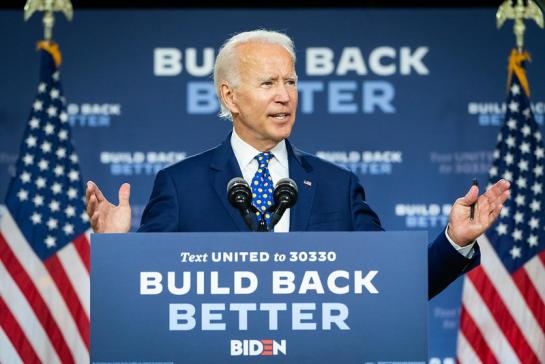
The Build Back Better Plan is a piece of legislation proposed by President Joe Biden to address urgent issues that have been ignored in America for far too long, like climate change, job loss as a result of the COVID-19 pandemic, and outdated infrastructure. The agenda also includes provisions for higher education, which would benefit millions of college students across the country. Whole programs like paid family leave, which would have provided family members with pay while they took time off for childcare or to take care of an ill relative, have been dropped to get the votes of centrist Democrats, Joe Manchin and Krysten Sinema, that are needed to pass the bill.
Programs in the plan involving higher education have been diminished as well. Funding for higher education in the bill has been cut by more than half, from about $115 billion in earlier versions of the bill to $40 billion in the current framework. The bill includes additional funding for historically black colleges and universities (HBCUs), minority-serving institutions (MSIs) and tribal colleges and universities (TCUs), as well as a moderate increase in the size of Pell Grants. Awarded federal Pell Grants will amount to just below $6,500, with Build Back Better funding a $550 increase in the total amount. Still, Pell Grants are often not enough to fund the education of low-income students, with the average student in the Federal Pell Grant Program being able to afford only 41% of two-year public colleges, and just 23% of four-year public colleges, in the 2018-19 school year. The plan’s increase cannot be used at for-profit colleges, something education advocates have voted for to quell the huge sums of money pouring into the for-profit college industry each year.
The agenda is also set to expand federal student aid eligibility to Deferred Action for Childhood Arrivals (DACA) and Temporary Protected Status (TPS) students. This protection represents an effort to lower the educational barriers for foreign students in America.
However, funding for programs aimed at decreasing the student dropout rate was slashed, and one of the most noteworthy and impactful items, free community college for every student during the next five years, was cut entirely. This is despite evidence that shows that free community college helps tackle the issue of college affordability, leads to more students enrolling in college and higher wages for people of color and low-income students. Michelle Miller-Adams, a political science professor and author of “The Path to Free College: In Pursuit of Access, Equity, and Prosperity stated, “The federal program would have at least offered the opportunity of a tuition-free path to community college to everyone in the nation. It would have been tremendously equalizing.”
Build Back Better also includes provisions that would save families thousands of dollars in early education costs and provide stable and effective childcare and pre-schooling in America. About $450 billion is set to be invested in helping families afford the cost of child care and would fund universal pre-k for all three and four year olds, no matter their family’s income or other eligibility requirements. While many working American families currently face a childcare crisis due to the high cost of child care straining family budgets and forcing Americans out of the workforce to take care of children, many of them being women, these provisions would have a huge effect on families. Build Back Better would allow for nearly all families of four earning up to $300,000 to pay no more than 7% of their income on child care while simultaneously supplying a wide range of childcare providers, from public schools to Head Start programs, with funding for preschool programs.
As the Education Trust, a national nonprofit education advocacy group said in their statement about the plan, “The Build Back Better Act contains substantial investments in early childhood education, higher education, school nutrition, and educator preparation systems, the entirety of which represent a step in the right direction towards improving the quality of education for all students in this country. We urge swift passage of the entire budget reconciliation bill by the full House, even as we urge the Senate to improve upon the House bill in key areas.”
Build Back Better has yet to be passed, and the effect the bill will have on education is still unknown. From a college student’s perspective, the focus Build Back Better has placed on making education more accessible is better than nothing. Now we wait to see if Congress is functional enough to deliver.

